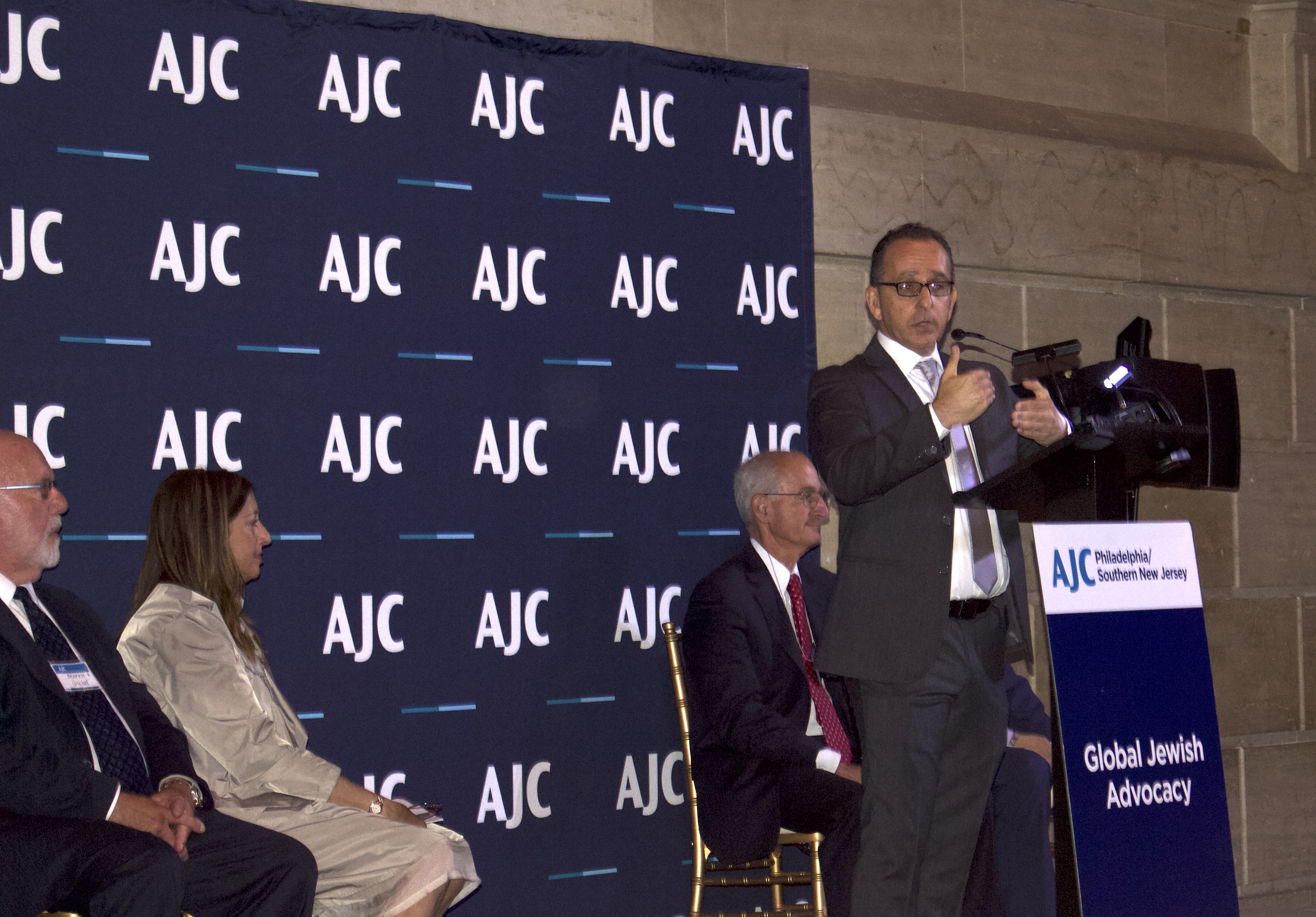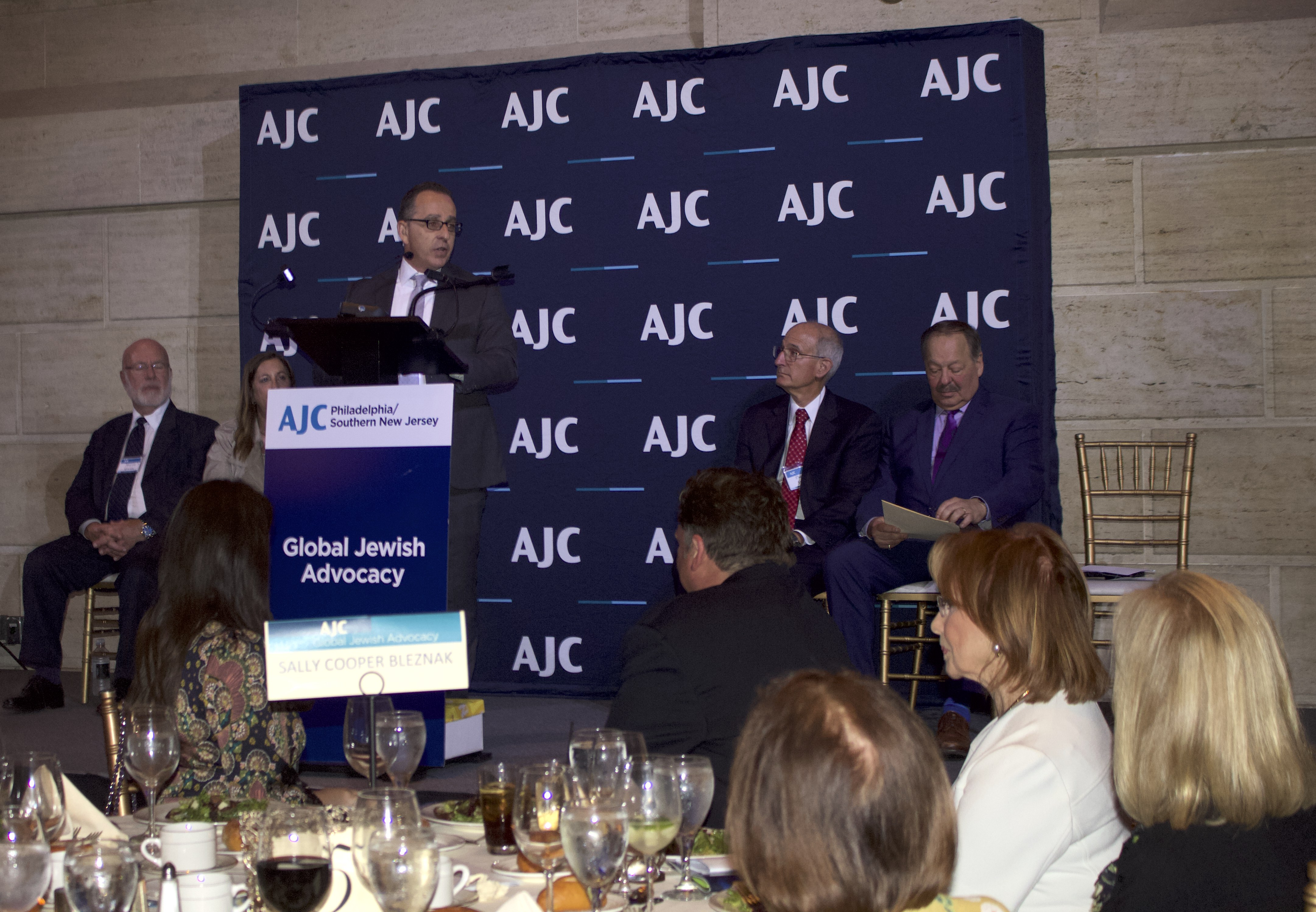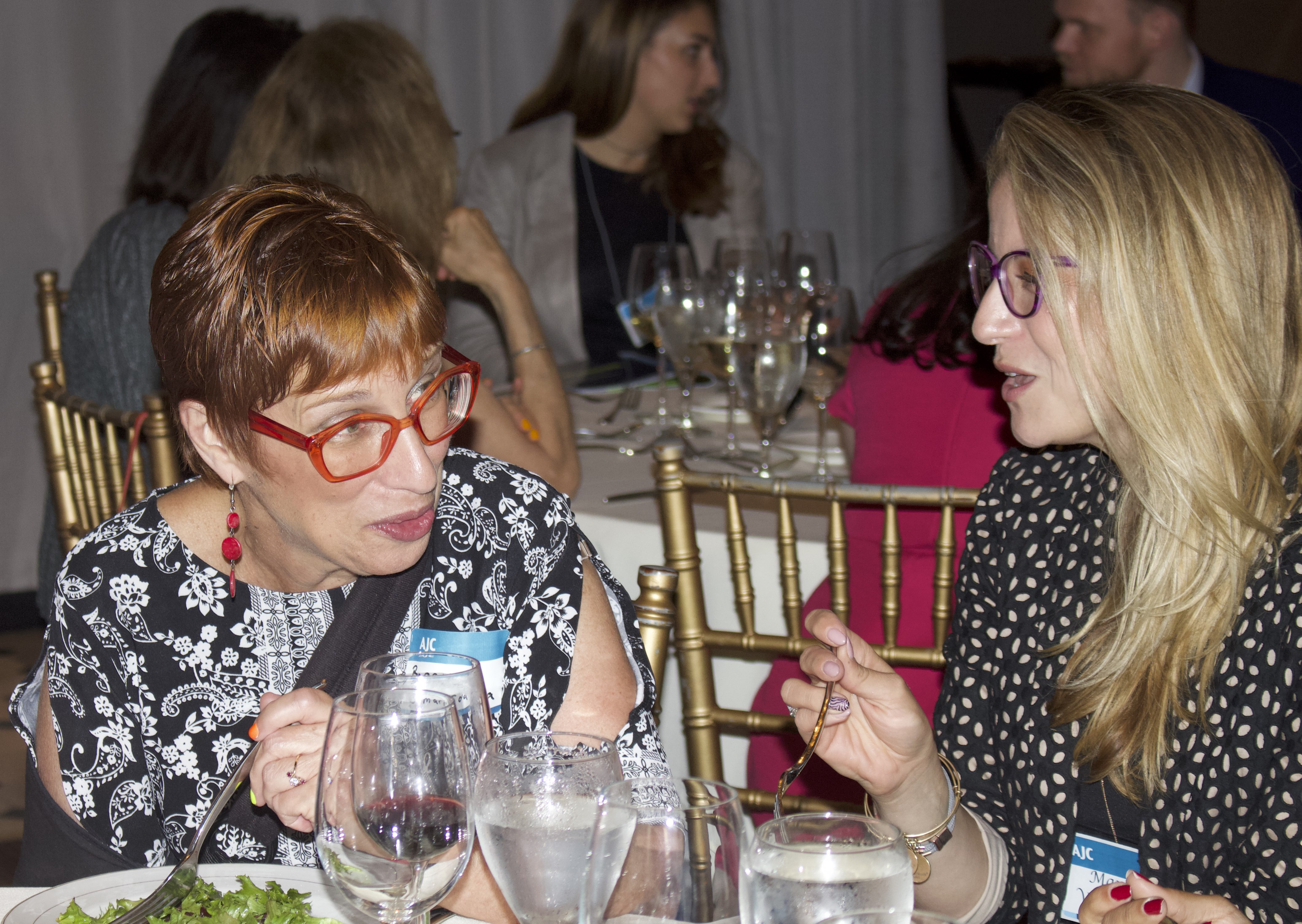
The American Jewish Committee highlights the intersectionality of the Jewish and Latino communities
The American Jewish Committee brought together the two communities at an annual award dinner to discuss issues such as immigration reform and anti-Semitism.
The American Jewish Committee (AJC) showcased the Jewish and Latino communities in an annual award dinner, honoring Sally Bleznak, a founder of the Latino-Jewish Coalition.
On June 19, a few hundred Jews, Jewish-Latinos, Latinos and their colleagues gathered for the Annual Meeting and Human Relations Award Dinner, where they laughed, networked and got serious about issues impacting both the Jewish and Latino communities.
AJC is a global Jewish advocacy organization founded in 1906 that works in places such as the United States, Latin America and Israel. Their objective is “building a safer, more secure future for the Jewish people, Israel and all humanity.”
One way AJC accomplishes this is through the creation of coalitions, such as the Jewish-Latino Coalition of Greater Philadelphia founded in 2013. In a previous interview with AL DÍA, Marcia Bronstein, AJC Philadelphia’s regional director, talked about the coalition’s mission.
“The mission is to use collaborative relationships and expand interactions on issues that are important to both of our communities,” Bronstein said.
During her speech, Bleznak further explained what issues the coalition explores: immigration reform, speaking on human rights, defending democratic values, removing bias and barriers to employment, and working for better quality schools and civic and political advancement.

Keynote speaker Juan Dircie, who is the associate director for National Latino Outreach, spoke on several of these issues, including democracy, immigration and human rights.
Dircie highlighted issues impacting the Jewish communities in different parts of Latin America, such as anti-Semitism, including the lack of acknowledgement that the synagogue bombing which left 85 people dead in Argentina was an act of terrorism — even though this is the 25th year since the attack occurred.
He spoke of the struggle of the college students in Chile who feel that if they express their connection with Israel, they will be ostracized from social circles.
On behalf of AJC, Dircie condemned what is happening at the U.S. border regarding immigration, which has left children dead and separated from their parents. He reminded the audience that Jews, just like those trying to cross the border, were or are immigrants.
"We all Jews came from somewhere else. we at one point, we were all immigrants. Let's not forget that we came here and we came here because we wanted to provide our families with a better future,” he said.
He also commented on the need for democracy.
“We need to be strongly, strongly standing side by side with the Latino community and we need to understand that when democracy is under attack, minorities will suffer. And we the Jews and the Latinos are minorities.” 
Attendees included Rev. Bonnie Camarada.
RELATED CONTENT
AL DÍA invited Dircie to speak with us Thursday, June 20, to learn more about what it means for him to be Jewish and Latino and how the experiences of the two communities relate to their immigration to the United States.
Honoree Sally Bleznak shared that through the work of the AJC Latino-Jewish Coalition she sees how the values of the communities intersect.
“We have so much in common with our Latino partners, both of us are immigrant populations, hardwired for family and maintaining traditions,” she noted.
She also observed how getting to know the Latino community has been meaningful for her.
“Getting to know our Latino partners has been one of my most rewarding experiences of my AJC affiliation. We have brought our communities together, and we have profited and learned so much from each other,” Bleznak said.
Bleznak’s words were shared by attendee Yocasta Lora, an immigrant from Dominican Republic, who is a member of the Latino-Jewish Coalition.
“It makes me more curious, to learn more about Latino Jews but also about my own culture, from the Dominican Republic and the Jewish community,” she said.
She also commented on how the event was a small way for the communities to come together and share cultures.
“It’s an occasion in which we can connect to each other as Latinos, as the Jewish community, and cross cultural lines and talk about the problems that affect all of us, as immigrants, and the solutions that we can create,” she said.










LEAVE A COMMENT: